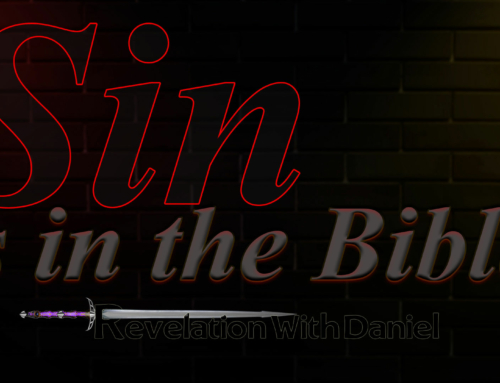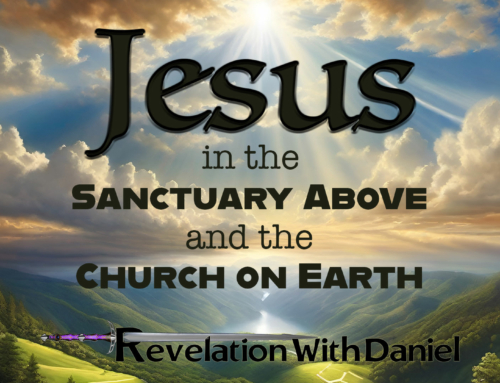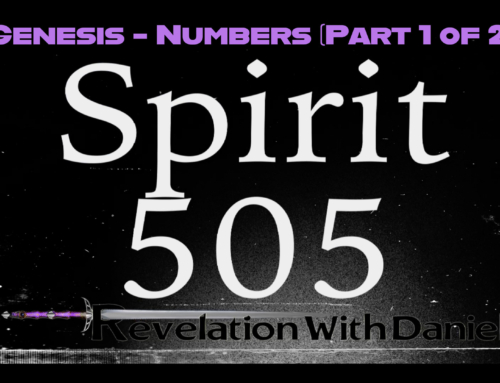 With God the Father as Creator through His Son, look at the first gift of time God gave to man.
With God the Father as Creator through His Son, look at the first gift of time God gave to man.
Saturday, seventh day of the week; different theories explain name, including that it comes from the Latin Saturni dies, or day of the god Saturn, and that it was named Saturn’s-day by Babylonians after Saturn, one of the 5 planetary bodies known to them; Jewish Sabbath, or holy day; (Compton’s Interactive Encyclopedia).
Friday, sixth day of the week; name derived from Frigg’s-day; Frigg (or Freya), the wife of the god Odin,… Jewish Sabbath begins Friday evening;… (Compton’s Interactive Encyclopedia).
Sunday, first day of the week. Its English name and its German name (Sonntag) are derived from the Latin dies solis, “sun’s day,” the name of a pagan Roman holiday. (Encarta Encyclopedia).
Saturday, seventh day of the week, named in honor of the Roman god Saturn. In Latin, Saturday was called dies Saturni; it was called Sater-daeg by the Anglo-Saxons. It is the holy day of the Israelites of the Old Testament and in Hebrew is called Sabbath, the only day of the week with a name, the rest being numbered (Encarta Encyclopedia).
Sab-bath (sabth) n. Abbr. S., Sab. 1. The seventh day of the week, Saturday, observed as the day of rest and worship by the Jews and some Christian sects (American Heritage Talking Dictionary).
Sabbath, n. The day which God appointed to be observed by the Jews as a day of rest from all secular labor or employments, and to be kept holy and consecrated to his service and worship. This was originally the seventh day of the week, the day on which God rested from the work of creation; and this day is still observed by the Jews and some christians, as the Sabbath (Webster’s 1828 Dictionary).
Sunday, n. The Christian Sabbath; the first day of the week (Webster’s 1828 Dictionary).
Sabbath (Hebrew Shabbat, derived from the verb shavat, “to rest, cease”), a holy day of rest observed by the Jews and some Christian denominations on the seventh day of the week (see Saturday) and by most Christians on Sunday. The origin of the Sabbath is uncertain… (Encarta Encyclopedia).
Where did the Sabbath come from, anyway?
-
-
- What is a year? The earth revolving around the sun.
- What is a month? The moon revolving around the earth.
- What is a day? The earth rotating once on its axis.
- What is a week? ONLY the Bible tells us! Therefore, the Sabbath (last day of the week—Saturday) comes solely from God’s word, not some atmospheric entity!
- Notice, the whole world is on a weekly cycle—a continuing ramification of God’s creation week.
-
Can we be sure that the Sabbath is really Saturday? Wasn’t there a change? (Notice the references on page one.)
-
-
- When the calendar was changed – Great Britain had Thursday, 14 September, 1752 follow Wednesday, 2 September, 1752 (Wikipedia Free Encyclopedia).
- The Jews are still keeping the same day they have kept since our faithful Messiah was on the earth.
- Catholics, who were united with and came through the Romans, have been keeping Sunday since the early years AD.
-
There is a day of the week called “Good” according to many Protestants. What day is it?
“Good ________?”
Two days after that, we know a day named Easter or Resurrection ________.
Would a Protestant ever admit that they were not sure when Good Friday or Resurrection Sunday was? Why then question the weekly cycle except to confuse Sabbath keeping?
Why don’t Protestant Pastors say anything about this?
I was host and participant of a television broadcast numerous times, through TCT Ministry, called, “Ask the Pastor.” I spoke with and overheard many of the local Grand Rapids, MI pastors (50+) that said the Sabbath was Saturday, but to them it didn’t matter. (It’s like the religious leaders in Christ’s day—they wanted the law, but not Christ— except today, the religious leaders want Christ and not His law!) We ought to have both, the Moral Law and Jesus Christ!
They don’t see the prophetic ramifications of keeping Sunday in place of Saturday as the Sabbath. Many of them don’t realize the fact that in keeping Sunday, they are following the dictates of man’s tradition, not the authority of the Word of God. Many don’t realize they are following the authority of the Roman Catholic Church, not the authority of the Lord Jesus Christ and His holy Word! (“But in vain they do worship me, teaching for doctrines the commandments of men” [Matt. 15:9].)
Look at what many of our Protestant family are being taught…
Easton’s Bible Dictionary, “Sabbath” — After his resurrection, which took place on the first day of the week (Mat_28:1; Mar_16:2; Luk_24:1; Joh_20:1), we never find Christ meeting with his disciples on the seventh day. But he specially honoured the first day [His resurrection day] by manifesting himself to them on four separate occasions [ALL on the same day—His resurrection day] (Mat_28:9; Luk_24:34, 18-33; Joh_20:19-23). Again, on the next first day of the week, Jesus appeared to his disciples (Joh_20:26) [This is not true! Notice John 20:19 – “Then the same day at evening, being the first day of the week, when the doors were shut where the disciples were assembled for fear of the Jews, came Jesus and stood in the midst, and saith unto them, Peace be unto you.” — Evening on resurrection day meant the start of MONDAY! The Bible says many times, the evening and morning makes up the day—See Genesis 1:5. Days in the Bible start at night, and go on till the next sundown]. Some have calculated that Christ’s ascension took place on the first day of the week [Acts 1:3 says Christ was with His disciples 40 days—Count 40 in a weekly cycle from Sunday and you come to Thursday or Friday, right?]. And there can be no doubt that the descent of the Holy Ghost at Pentecost was on that day (Act_2:1). Thus Christ appears as instituting a new day to be observed by his people as the Sabbath, a day to be henceforth known amongst them as the “Lord’s day.” [The only “Lord’s Day” in the Bible is the Sabbath—Mark 2:28]. The observance of this “Lord’s day” as the Sabbath was the general custom of the primitive churches [???], and must have had apostolic sanction (compare Act_20:3-7; 1Co_16:1, 1Co_16:2) and authority, and so the sanction and authority of Jesus Christ. (Bold comments supplied.)
Alright, so according to the Bible, has Sunday been commended as a day of worship to the early and current Christians by the example of the Apostles?
-
- Acts 20:3-7 – Paul in this chapter, vss. 1&3, was heading toward Macedonia (wherein was Philippi and Thessalonica—two books he wrote nothing of concerning the change of the Sabbath). He also stopped in Greece for 3 months, vss. 2-3 (wherein is Corinth—a book we will consider). Vs. 7 must be showing the evening of the Sabbath day (called the first because the evening and morning is how the Bible considers its days—Genesis 1:5). The disciples were listening to Paul, who would be leaving Sunday morning, “the morrow”. He preached from the going down of the sun (at around 6:30 Jewish time around Passover, found at http://www.adventist.org/sun/), and continued till midnight. The service followed the same timing sequence the Bible refers to, from even to midnight. Note Mark 13:35, “Watch ye therefore: for ye know not when the master of the house cometh, at even, or at midnight, or at the cock crowing, or in the morning.” If Paul would have been preaching an early Sunday morning service (as many Pastors suggest), he would have preached from 11:00 am to 12:00 am—13 hours!
If he had preached starting at the evening of the first day (Saturday night), he would have still been “long preaching.” He would have continued preaching for 5+ hours! Notice also what he said in verses 20 & 27. “I kept back nothing that was profitable unto you, but have shewed you, and have taught you.” Also, “I have not shunned to declare unto you all the counsel of God.” If what he said was true in this most famous address, about showing all the truth, would he be lying because he didn’t tell us about the change of Sabbath solemnity? - 1 Cor 16:1-2 – The first thing to notice in this text is that it is dealing with “the collection for the saints.” The collection was made for God’s people of Jerusalem, as said in verse 3. The book of Romans gives us a clue as to why there was need for a collection for those in Jerusalem area (15:25-26). There were poor saints there.
All Paul desired was a gathering of an offering, on the day he would arrive, so he could receive the funds to give to the people recommended to take over to Jerusalem. He didn’t want to waste any time gathering while he was there; he wanted the gathering done before his arrival.
Why do people have to use this text to show that Sunday is a day for spiritual worship? Where is the word Sabbath in all of the context?
Where is the charge to keep the first day holy?
It seems there are a whole lot of presuppositions and assumptions on the part of the Protestant scholars!
- Acts 20:3-7 – Paul in this chapter, vss. 1&3, was heading toward Macedonia (wherein was Philippi and Thessalonica—two books he wrote nothing of concerning the change of the Sabbath). He also stopped in Greece for 3 months, vss. 2-3 (wherein is Corinth—a book we will consider). Vs. 7 must be showing the evening of the Sabbath day (called the first because the evening and morning is how the Bible considers its days—Genesis 1:5). The disciples were listening to Paul, who would be leaving Sunday morning, “the morrow”. He preached from the going down of the sun (at around 6:30 Jewish time around Passover, found at http://www.adventist.org/sun/), and continued till midnight. The service followed the same timing sequence the Bible refers to, from even to midnight. Note Mark 13:35, “Watch ye therefore: for ye know not when the master of the house cometh, at even, or at midnight, or at the cock crowing, or in the morning.” If Paul would have been preaching an early Sunday morning service (as many Pastors suggest), he would have preached from 11:00 am to 12:00 am—13 hours!
-
- Col 2:14-17 –
-
-
- Ordinances (= customs)—
-
-
-
-
- Exo 18:20 – Two things—Both ordinances and laws
- Lev 18:3-4 – God and heathen both had ordinances
- Neh 9:13 – There were ordinances given at Sinai (same work as commandments)
- 2 Kings 17:36-38 – Keeping them shows faithfulness to God
- 2 Chron 33:8 – Ordinances were by the hand of Moses
- Neh 10:32 – People made their own ordinances
- Job 38:33 – There are ordinances in heaven
- Isa 58:2 – There are ordinances of justice
- Jer 31:35 – The moon and stars have ordinances
- Eze 43:18 – Ordinances of the altar
- Eph 2:15 – A law or commandments in ordinances
- Heb 9:1 – First sanctuary had divine ordinances
- Heb 9:10 – A figure for the time then present, carnal ordinances
- Handwriting of ordinances—
- 2 Chron 33:8 says Moses wrote the ordinances including the sacrifices, altar services, feasts, rituals, washings, dressing of priests, etc. (the moral law was written by the hand of God, Exodus 31:18, 34:1)
- Ordinances against us—
- Deut 31:26 – “Book of the law…in the side of the ark…a witness against thee.”
- Nailing it to the cross—
- The moral law was made of stone—showing durability
- The law of Moses, of ordinances, was written on paper
- Is it still wrong to steal? Commit adultery? Lie? Have other gods before the Creator?
- Is there a need to sacrifice? Go to Jerusalem 3 times a year? Eat unleavened bread? Etc?
-
-
-
-
- Meat, Drink, Holyday, New Moons, Sabbaths—
-
-
-
-
- Neh 10:33 – “For the shewbread, and for the continual meat offering, and for the continual burnt offering, of the sabbaths, of the new moons, for the set feasts, and for the holy things, and for the sin offerings to make an atonement for Israel, and for all the work of the house of our God.”—This is all obviously part of the festival language of ceremonies written by the hand of Moses. All these things were but shadows of the coming reality—Christ in His service of perfection!
- This section in Colossians has NOTHING to do with doing away the moral law. It has EVERYTHING to do with the end of the ceremonial services done by the “handwriting” of Moses!
- Note Galatians 3:19 “Wherefore then serveth the law? It was added because of transgressions, till the Seed should come to whom the promise was made…” That Seed is Christ (Vs. 16).
-
-
What about breaking bread?
-
-
- Six verses in the New Testament use these words together, “break”(ing) and “bread.”
-
-
-
-
- Luk 24:35 – “And they told what things were done in the way, and how he was known of them in breaking of bread.” (The first day – no new command about Sabbath keeping)
- Act 2:42 – “And they continued stedfastly in the apostles’ doctrine and fellowship, and in breaking of bread, and in prayers.” (No day referred to here, and no command about Sabbath keeping)
- Act 2:46 – “And they, continuing daily with one accord in the temple, and breaking bread from house to house, did eat their meat with gladness and singleness of heart.” (This was a daily occurrence – Does this mean every day was holy to the Apostles?)
- Act 20:7 – “And upon the first day of the week, when the disciples came together to break bread, Paul preached unto them, ready to depart on the morrow; and continued his speech until midnight.” (Note the above comments)
- Act 20:11 – “When he therefore was come up again, and had broken bread, and eaten, and talked a long while, even till break of day, so he departed.” (After the man’s resurrection, he continued talking, eating, and fellowshipping because he was leaving in a short time.)
- 1Co 10:16 – “The cup of blessing which we bless, is it not the communion of the blood of Christ? The bread which we break, is it not the communion of the body of Christ?” (In the very next chapter, Paul addresses communion. Does he tell us what time to do it? Does he say only on Sunday services? No, he said, “as often as ye eat this bread, and drink this cup, ye do shew the Lord’s death till he come” [1Co 11:26]. There is no command here for Sabbath sacredness on the first day.)
-
-
Saying we ought to keep Sunday in honor of the Lord has rather slim pickings for Bible texts to support it! In fact, none at all!
What about Christ giving us the new commandments? (Matt 22:36-40)
-
-
- Exo 20:3-11 – “1 Thou shalt have no other gods before me. 2 Thou shalt not make unto thee any graven image, or any likeness of any thing that is in heaven above, or that is in the earth beneath, or that is in the water under the earth: Thou shalt not bow down thyself to them, nor serve them: for I the LORD thy God am a jealous God, visiting the iniquity of the fathers upon the children unto the third and fourth generation of them that hate me; And shewing mercy unto thousands of them that love me, and keep my commandments. 3 Thou shalt not take the name of the LORD thy God in vain; for the LORD will not hold him guiltless that taketh his name in vain. 4 Remember the sabbath day, to keep it holy. Six days shalt thou labour, and do all thy work: But the seventh day is the sabbath of the LORD thy God: in it thou shalt not do any work, thou, nor thy son, nor thy daughter, thy manservant, nor thy maidservant, nor thy cattle, nor thy stranger that is within thy gates: For in six days the LORD made heaven and earth, the sea, and all that in them is, and rested the seventh day: wherefore the LORD blessed the sabbath day, and hallowed it.”
-
-
-
- (These first four commandments show us how to love God with all our heart, mind, soul, and strength.)
-
-
-
- Exo 20:12-17 – “5 Honour thy father and thy mother: that thy days may be long upon the land which the LORD thy God giveth thee. 6 Thou shalt not kill. 7 Thou shalt not commit adultery. 8 Thou shalt not steal. 9 Thou shalt not bear false witness against thy neighbour. 10 Thou shalt not covet thy neighbour’s house, thou shalt not covet thy neighbour’s wife, nor his manservant, nor his maidservant, nor his ox, nor his ass, nor any thing that is thy neighbour’s.”
-
-
-
- (These last six teach us how best to love our neighbors as ourselves.)
-
“On these two commandments hang all the law and the prophets” (Matt 22:40).
-
-
- The first that Christ mentioned was quoted from Deut 6:5, “And thou shalt love the LORD thy God with all thine heart, and with all thy soul, and with all thy might.”
- The second that Christ mentioned was quoted from Lev 19:18, “Thou shalt not avenge, nor bear any grudge against the children of thy people, but thou shalt love thy neighbour as thyself: I am the LORD.”
- The law of God, the law of Moses, and the prophets messages were all trying to bring about the same end—humanity loving humanity and God above all else.
-
Is it possible for the law of God to be changed?
| God is… | Law is… | |
|---|---|---|
| Good | Lk 18:19 | 1 Tim 1:8 |
| Holy | Is 5:16 | Rom 7:12 |
| Perfect | Mt 5:48 | Ps 19:7 |
| Pure | Ps 12:6 | Ps 19:8 |
| Just | Dt 32:4 | Rom 7:12 |
| True | Jn 3:33 | Ps 19:9 |
| Spiritual | 1 Cor 10:4 | Rom 7:14 |
| Righteousness | Jer 23:6 | Ps 119:172 |
| Faithful | 1 Cor 1:9 | Ps 119:86 |
| Love | 1 Jn 4:8 | Rom 13:10 |
| Unchangeable | Jms 1:17 | Mt 5:18 |
| Eternal | Deut 33:27 | Ps 111:7-8 |
| Light | 1 Jn 1:5 | Pr 6:23 |
By this chart it is clear to see that God’s law is a transcript of His unchangeable character. If God’s law could have been changed, do you think God would have changed it, instead of asking His Son to die because it was broken? Christ’s death is proof that the law of God is immutable!
Did Paul think that we are under grace, not under God’s law?
-
-
- Romans 6:14-15 – “For sin shall not have dominion over you: for ye are not under the law, but under grace. What then? Shall we sin, because we are not under the law, but under grace? God forbid.”
-
-
-
- The first question we must ask in this section is, “what is ‘sin’ that we should NOT be doing since we are under grace?”
- 1Jo 3:4 – Whosoever committeth sin transgresseth also the law: for sin is the transgression of the law.” Or, as said in the Basic Bible in English, “Everyone who is a sinner goes against the law, for sin is going against the law.”
- The second question we should be asking is, “because we are ‘not under the law,’ does that mean that we can steal, kill, worship false gods, and break the Sabbath?”
- The first question we must ask in this section is, “what is ‘sin’ that we should NOT be doing since we are under grace?”
-
-
-
-
- A man was pulled over for going too fast in his car. The police officer came to him, took his license, came back and said, “You are guilty, and deserve the penalty.” The man frowned, knowing all was true. The police officer said, “I will be merciful today, but don’t do that again.” The man was now ‘not under the law, but under grace.’ Does he shout “Alleluia!” mash the gas peddle, spin his wheels and tear up the pavement because he was officered mercy? No, he abides very carefully now to the law, so as not to bring upon himself the guilt of any more infractions.
- The third question we must ask is, “What did Paul mean then when he wrote Romans 3:28-31?”
- He meant the same as when he wrote in chapter six. We are saved to live righteously, in accord with God’s perfect moral law, not living in sin because of grace. We are justified by believing in Jesus Christ, but we are still called to sanctification, to uphold the law as we live by faith—which includes the whole law, even the Sabbath. (“For anyone who keeps all the law, but makes a slip in one point, is judged to have gone against it all. For he who said, Do not be untrue in married life, is the same who said, Put no man to death. Now if you are not untrue in married life, but you put a man to death, the law is broken. Let your words and your acts be those of men who are to be judged by the law which makes free” James 2:10, BBE.)
-
-
Are there any examples of Jesus keeping Sabbath?
-
-
- Matt 12:1-15; Luke 6:1-11; John 5:1-18 – Christ showed how important it is to do well on the Sabbath day. He healed, spent time in nature, spent time in church, and told spiritual illustrations to those who would hear. The Pharisees accused Jesus of breaking the commandment, but Jesus showed us that He was giving a correct example of how to keep the day.
- Matt 24:20 – This text shows, during the early 30’s AD, just before Christ died, that He was telling His disciples to protect the Sabbath hours. The time Christ encouraged them to protect the Sabbath hours was during the destruction of Jerusalem, 36+ years later! (Compare the context of Luke 21:20 with this section to see they are speaking of the same time—the destruction of Jerusalem).
- Mark 1:21, 3:2, 6:2; Luke 4:16, 31, 13:10-16, John 6:59 – This shows that Christ went to church and preached on His day.
- Mark 2:27-28 – This shows that Christ made the Sabbath for man, and that He is the Lord of the Sabbath—therefore, the 7th day is the “Lord’s Day.”
- Mark 16:1; Luke 23:54-24:1 – This shows Christ’s disciples honoring the Sabbath by not preparing spices on that day, or anointing His body with those spices on that day. If ever there were a time to lay aside the Sabbath commandment to honor Christ, that would have been the time. But they wished to follow Christ’s commands to keep the Sabbath holy, even after His timely death.
- Luke 14:1-6 – This shows Christ having a “fellowship meal” with friends and enemies of His.
-
These are not all of the references so you may wish to download a free Bible program.
Are there any examples of the Apostles keeping the Sabbath?
-
- Acts 13:14 – Paul and his company sat through a service in a church on the Sabbath, then preached to the hearers.
- Acts 13:27 – Paul, in his sermon referred to in the previous text, mentioned that the prophets were read every Sabbath.
- Acts 13:42 – This text shows both Jews and Gentiles keeping the Sabbath after Christ’s resurrection, under the instruction of Paul (who later said that he had told them all things profitable—yet never mentioned the changing of the day [Acts 20:20, 27]).
- Acts 13:44 – This time, the next week after the previous verse, would have been the perfect time to mention the change of the day. Almost the whole city was gathered together to hear about Christ and His truth!
- Acts 15:21 – James, at that time the leader of the Apostles, mentioned that every Sabbath was being kept and Moses was being read during worship service.
- Acts 16:13 – When Paul and his company were in Philippi, a place later receiving a letter by the hand of Paul, he kept the Sabbath with his crew (Timothy, Luke, and others). Why was there no mention of the change of the Sabbath in the books of Philippians, 1 & 2 Timothy, or Luke?
- Acts 17:2 – Here, in Thessalonica, Paul reasoned out of the Scriptures for three Sabbath days. In that city there was no reference to the change made, neither while Paul spoke or in the letter that came from Paul to the Thessalonians.
- Acts 18:4 – Paul, now in Corinth, preached about Christ in the churches on the Sabbath day. He persuaded both Jews and Greeks about Christ. Yet he never mentioned the change of the Sabbath day. Neither did he mention that in the letter to the Corinthians.
Why are so many people keeping Sunday instead of Saturday?
-
-
- When the Catholic Church had full rule over Rome during the dark and middle ages, which meant they had full rule over the world, there was no other safe option than keeping Sunday sacred. When Protestants came from Europe to America, and the other places of the world, they brought the custom of Sunday keeping with them. The Catholic Church admits their attempt to change the day in The Converts Catechism of Catholic Doctrine (1957), p. 50 where Peter Geiermann, C.S.S.R., writes:
-
“Question: Which is the Sabbath day?
“Answer: Saturday is the Sabbath day.
“Question: Why do we observe Sunday instead of Saturday?
“Answer: We observe Sunday instead of Saturday because the Catholic Church transferred the solemnity from Saturday to Sunday.”
Does Revelation say anything about the commandments and the Sabbath day?
-
-
- The Bible portrays a people who, at the end of time are the enemies target—those that keep the commandments of God. “And the dragon was wroth with the woman, and went to make war with the remnant of her seed, which keep the commandments of God, and have the testimony of Jesus Christ” (Rev 12:17).
- We also see an end time people, contrasted in verses 9-11 with those who worship the beast and his image, keeping the commandments in chapter 14:12. “Here is the patience of the saints: here are they that keep the commandments of God, and the faith of Jesus.”
- Finally, at the end of the earth’s history as we know it, up in heaven past the gates of glory, there will be those who ‘have the right’ to eat the everlasting-life- giving-fruit, and enter the Celestial City. “Blessed are they that do his commandments, that they may have right to the tree of life, and may enter in through the gates into the city” (Rev 22:14).
-
What are the prophetic implications of this question?
-
-
- Dan 7:25 says that the antichrist, or little horn power, would “think to change times and laws.” Both aspects of ‘time’ and ‘law’ can be found in the Sabbath commandment.
- Speaking of the destruction of Jerusalem (referring to 36+ years in the future), Jesus said, “Pray ye that your flight be not in the winter, neither on the Sabbath day” (Matt 24:20).
- Jesus said, “If you love Me, keep My Commandments” (John 14:15). Especially in light of end time events, should we ever consider not loving Christ?
- 2 Thes 2:4 says that the antichrist will be one “who opposeth and exalteth himself above all that is called God, or that is worshipped; so that he as God sitteth in the temple of God, shewing himself that he is God.” Would that include enforcing religious laws?
- Rev 12:17 says the enemy will be wroth (angry or exasperated) with those who keep the Commandments of God. Isn’t this telling?
- Rev 14:7 speaks of worshipping God, using language taken directly from the Sabbath Commandment in Exodus 20.
- In contrast to those who “worship the beast and his image,” God said there will be at the end of time those “that keep the commandments of God, and the faith of Jesus” (Rev 14:11-12).
- Rev 22:14 says, “Blessed are they that do his commandments, that they may have right to the tree of life, and may enter in through the gates into the city.” Do you think keeping the Commandments are important?
-
Jesus and the Ten Commandments / Exodus 20:1-17
Exodus 20:3 “Do not worship any other gods besides me. Serve only him.”
Matthew 4:10 “You must worship the Lord your God;
Exodus 20:4 “Do not make idols of any kind.”
Luke 16:13 “No one can serve two masters.”
Exodus 20:7 “Do not misuse the name of the LORD your God.”
Matthew 5:34 “But I say, don’t make any vows! If you say, ‘By heaven!’ it is a sacred vow because heaven is God’s throne.”
Exodus 20:8 “Remember to observe the Sabbath day by keeping it holy.”
Mark 2:27-28 “The Sabbath was made to benefit people and not people to benefit the Sabbath. And I, the Son of Man, am master even of the Sabbath!”
Exodus 20:12 “Honor your father and mother.”
Matthew 10:37 “If you love your father or mother more than you love me, you are not worthy of being mine.”
Exodus 20:13 “Do not murder.”
Matthew 5:21-22 “If you are angry with someone, you are subject to judgment!”
Exodus 20:14 “Do not commit adultery.”
Matthew 5:28 “Anyone who even looks at a woman with lust in his eye has already committed adultery with her in his heart.”
Exodus 20:15 “Do not steal.”
Matthew 5:40 “If you are ordered to court and your shirt is taken from you, give your coat, too.”
Exodus 20:16 “Do not testify falsely against your neighbor.”
Matthew 12:36 “You must give an account on judgment day of every idle word you speak.”
Exodus 20:17 “Do not covet.”
Luke 12:15 “Don’t be greedy for what you don’t have.”
| It’s Jewish! (Author: Uriah Smith) When we present God’s holy law, And arguments from scripture draw, Objectors say, to pick a flaw, ‘It’s Jewish’.Though at the first Jehovah blessed And sanctified His day of rest, The same belief is still expressed, ‘It’s Jewish’.Though with the world this rest began, And thence through all Scriptures ran, And Jesus said ’twas made for man’ – ‘It’s Jewish’.Though not with Jewish rites, which passed, But with the moral law ’twas classed, Which must exist while time shall last, ‘It’s Jewish’.If from the Bible we present The Sabbath’s meaning and intent, This answers every argument – ‘It’s Jewish’. Though the disciples, Luke and Paul, | The gospel teacher’s plain expression, That “Sin is of the law transgression,” Seems not to make the least impression – ‘It’s Jewish’.They love the rest of man’s invention, But if Jehovah’s day we mention, This puts an end to all contention, ‘It’s Jewish’.O ye who thus God’s day abuse, Simply because ’twas kept by Jews, The Saviour, too, you must refuse, ‘He’s Jewish’.The Scriptures, then, we may expect For the same reason you’ll reject; For if you will but recollect, ‘They’re Jewish’.Thus the apostles, too, must fall; For Andrew, Peter, James, and Paul, Thomas, Matthew, John, and all ‘Were Jewish’.So to your helpless state resign Yourself in wretchedness to pine; Salvation, surely you’ll decline, ‘It’s Jewish’. (Jesus said, “Salvation is of the Jews” |







Leave a Reply